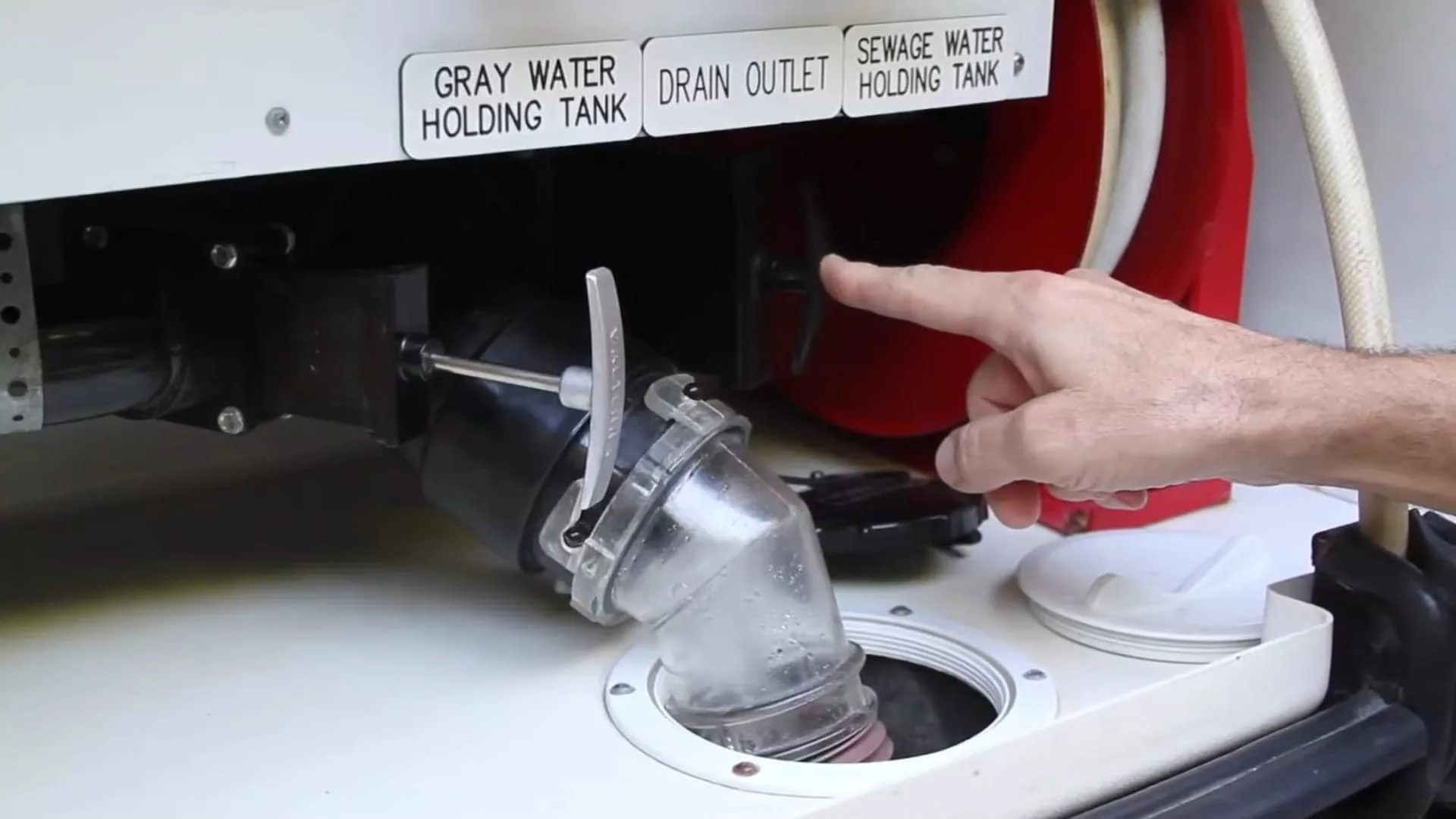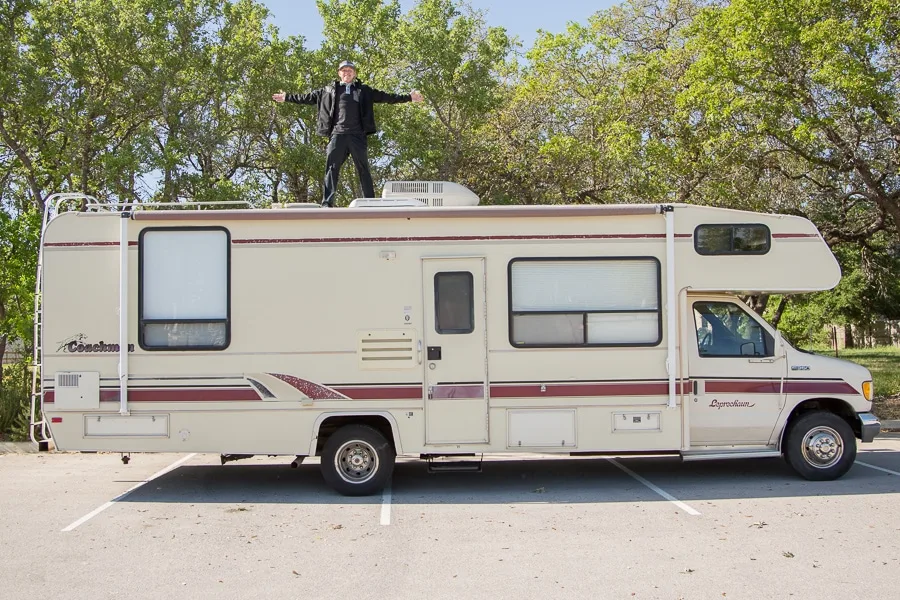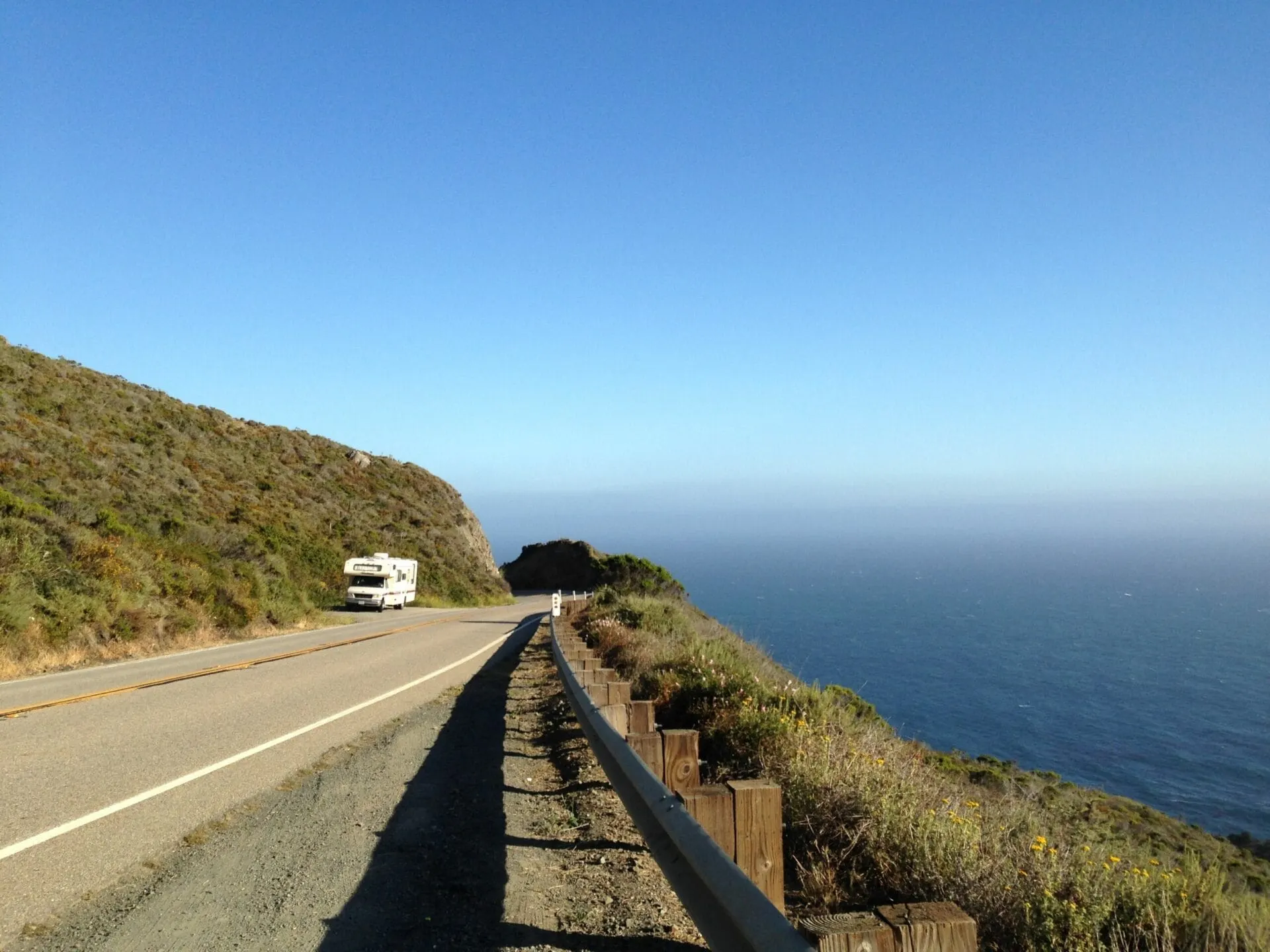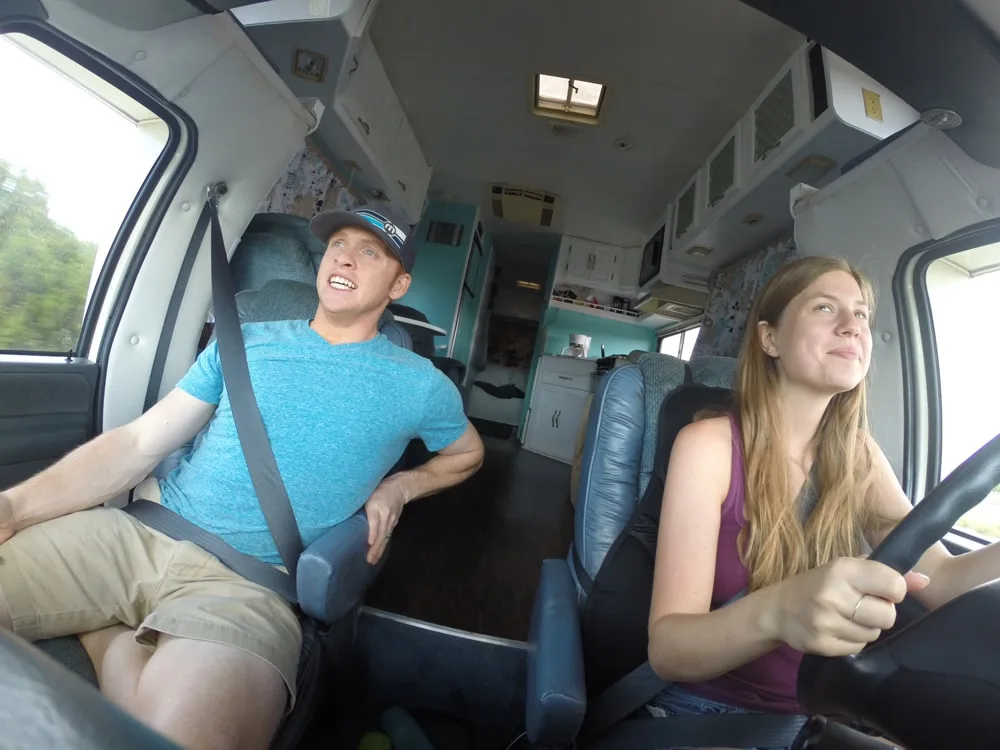While we’ve made plenty of RV newbie mistakes ourselves over the years, we’re happy to be sharing someone else’s mistakes! Today we’re thrilled to feature a special guest post by best-selling author, and our dear friend, Alyssa Padgett.
Besides her fame from her first book — A Beginner’s Guide to Living in an RV — Alyssa and her husband Heath are well known to RVers everywhere as the bloggers behind HeathAndAlyssa.com and the founders of The RV Entrepreneur Summit (which we spoke at this past September). Widely known in the RV industry, Health also founded the RV Entrepreneur Podcast and Campground Booking.
The Padgetts also showed the world how crazy fearless they are by RVing across Italy… with 4-month-old baby Ellie in tow! Although they did have a tiny bit of help on that trip from Uncle Peter & Uncle John (just to be clear… we’re Ellie’s uncles… we’re far too young to be Alyssa & Heath’s uncles… cough cough).
Just in time for the highly-anticipated debut of Alyssa’s brand new book RVing Across America (which was released just yesterday!), she’s joining us here today as our first-ever guest blogger, boldly sharing their RV newbie mistakes without shame!
Without further ado, or any more bragging on the fact that we’re honored to call Alyssa & Heath our-dear-friends-who-we’re-traveling-to-Europe-with-again-later-this-year, here’s Alyssa’s guest post — 9 RV Newbie Mistakes To Avoid. Take it away Alyssa!
You may get a manual when you buy an RV, but there are plenty of RVing tips it won’t tell you that you need to know to avoid RV newbie mistakes.
How do you know if your RV can fit down a certain road?
Where are the best campsites in America?
What else do you need to buy for your RV?
Seasoned RVers can be the best resource for helping RV newbies learn the ropes and avoid a few rookie RVing mistakes — like these nine!
Don’t worry if you’ve made any of these mistakes before. We made ALL of these mistakes our first year full-time RVing and we’ve got the stories to prove it.
- 1) Accidentally flooding your RV because your tanks are closed.
- 2) Dumping your black tank without wearing gloves.
- 3) Not carrying extra drinking water on board.
- 4) Driving toward low clearances.
- 5) Accidentally blowing up a fridge due to being parked unlevel.
- 6) Forgetting to make camping reservations.
- 7) Plugging in your RV in a regular plug.
- 8) Getting stuck in the mud.
- 9) Leaving your tow car in neutral when unhooking.
Accidentally flooding your RV because your tanks are closed.
When my husband texted me “I flooded the entire RV” after we had owned it for less than a week, I knew that our time RVing the country was going to be interesting.
Heath took a nice long shower and then decided to shave. Leaving the water running as he shaved, our grey tank overflowed.
Some RVs are equipped for overflowing and may overflow straight onto the ground if you overfill your tank.
But our RV overflowed at the lowest drain: our shower.
Water poured out while Heath continued to shave, oblivious, and it wasn’t until the rug was wet under his feet and the rest of the RV was coated in standing water that he realized his mistake: The grey tank was closed.
When at an RV park for an extended period of time, save yourself the mopping and go ahead and leave your grey tank open.

When you’re staying at an RV park for a stretch, you can leave your gray water tank open so you won’t have a Heath Padgett-style RV flood on your hands!
Dumping your black tank without wearing gloves.
“You don’t wear gloves?” the stranger asked.
Heath looked down at his naked hands. Our sewer hose had broken mid-dump and somewhere along the way as he replaced it with our backup hose — which is another good newbie tip: have a backup sewer hose — he took off his gloves and didn’t notice.
When another RV pulled up to dump and pointed it out, Heath realized his rather disgusting mistake.
Where you store your hoses, be sure to keep gloves and some hand sanitizer to make the nastiest part of RV life a little cleaner.
Not carrying extra drinking water on board.
We hooked up our hose at the campground and heard the familiar whoosh of water rushing through the pipes for the first time. Our water faucet bounced and spewed brown water. Hoping the brown sludge would clear out, I ran the water for a couple of minutes, but it never ran clear.
We were the fourth owners of our 20-year-old RV and we weren’t sure that any water passing through our pipes and tanks would actually be safe to drink. We decided it would be safest to carry water jugs and refill them as we traveled for drinking.
But not having access to any useable water at campgrounds hadn’t occurred to us! While this is rare, it’s certainly possible. (Even more possible is that you don’t make it to a full hookup campsite and need a little water onboard to boondock somewhere!)
Always keep some freshwater on board your RV—enough to flush toilets, wash your hands, and brush your teeth for 24 hours is the perfect amount! The dishes can wait.
Driving toward low clearances.
11’11”.
Those numbers are burned into my brain.
They were not, however, burned into the brain of the man driving our RV down an exit ramp with many signs stating boldly:
EIGHT-FOOT CLEARANCE.
LOW CLEARANCE.
NO TRUCKS.
HEATH, THIS MEANS YOU. AVOID THIS EXIT.
(Okay, maybe there wasn’t an orange sign saying that last one.)
But there were a LOT of orange signs warning against the low clearance my husband exited toward.
Particularly on the east coast, you may find yourself heading toward an unexpected low clearance. Many low clearances are still tall enough to fit an RV, but if you don’t know your exact clearance height, you may accidentally rip the roof off your RV.
Luckily for us, someone politely ran us off the road and guided us back to the interstate, otherwise, I wouldn’t be here to tell the tale.

Here we see Heath Padgett looking very proud to have not ripped off the roof of his 11′ 11″ RV by scraping through a low-clearance area with a height of 8 feet. (Many thanks to the good samaritan who ran Franklin off the road as a warning to its driver!)
Use a GPS specifically for trucks or RVs to help ensure you don’t run across low clearances on your next road trip.
Accidentally blowing up a fridge due to being parked unlevel.
Did you know that many three-way refrigerators can only operate when level? As little as a 3º incline can prevent your refrigerator from functioning correctly and can cause a minor chemical explosion from the imbalance.
Oh yes, I also know this from experience.
And let me tell you, RV refrigerators are VERY expensive to replace.
Save yourself the mess and the expense and always take the time to level your RV.
Forgetting to make camping reservations.
The beauty of RVing is that you’re free to go almost anywhere. But RVing and camping have grown in popularity year after year making campsites increasingly difficult to find.
During our first summer RVing, we decided to take our time driving the Pacific Coast Highway. It’s an idyllic drive for any RV (that is if your RV is under the 30-foot limit) and like any scenic area, every campsite was booked. The ranger told us the sites get completely booked six months in advance!

Franklin, Heath & Alyssa Padgett’s first RV, on the side of the road along the Pacific Coast Highway.
We drove for hours past full campgrounds. I wish that was the only time we found ourselves in a Walmart parking lot hoping to stay the night…but of course, it wasn’t.
If there’s an area or a specific park where you really want to camp on a road trip, plan ahead and book your reservations ahead of time!
Plugging in your RV in a regular plug.
Have you ever moochdocked?
It’s a rather silly made-up word to describe camping for free on someone’s property or in their driveway. (It’s also how we learned the lesson to always level your RV — even in a driveway overnight!)
Our first time moochdocking we learned a valuable lesson: Do. Not. Plug. In. Your. RV. To. A. Normal. Outlet.
Do not plug your RV into a regular outlet unless you have the proper adapters and extension cords. Most outlets cannot handle a 30 AMP RV being plugged in. And when you flip on your air conditioner, you may, for example, blow an electrical system to a college baseball field.
Obviously, this story is too ridiculous and not at all based on something we did in real life… and certainly not based on something we did twice…
You know what, let’s not talk about it.

Alyssa and Heath Padgett traveling down the road in their RV, not talking about the time they may or may not have blown an entire electrical system to a college baseball field.
Getting stuck in the mud.
California may have a reputation for being dry, but in Redwoods National Park, they’ve earned the title rainforest. After three days, our jacks were sunk deep into the mud of our dirt campsite — something we only realized when we tried to lift the jacks, and nothing happened.
I crawled under the RV and dug our jacks out with my hands, sufficiently covering myself in mud and grime while Heath maneuvered the levelers from inside.
This is so easily avoided!
Just put something under your RV jacks. There are tons of options for RV jack pads to help you avoid crawling in the mud for ten minutes.
Leaving your tow car in neutral when unhooking.
“What are you doing!”
“I’m just on Instagram. Why?” I questioned my husband from the passenger seat of our RV.
“You didn’t hear me? You didn’t see me on the rearview camera screen right in front of you getting crushed by our car?”
“What! No!”
“Yeah! Some guy ran over and moved the car to unpin me.”
“How did that even happen?”
“Oh.” Heath’s frustration at me paused for a moment. “I, uh, forgot to put the car in park when I was unhooking it. The site isn’t level so it rolled and pinned me against the RV and I couldn’t move.”
Don’t worry—Heath was uninjured in the making of this story and learned a valuable lesson: Keep your car in park when setting up for towing.
RV newbie mistakes will always happen, but hopefully, you can avoid these major ones!
I have dozens more stories about the many mistakes we’ve made while RVing across the country that I share in my latest book, RVing Across America.
This is a guest blog from Alyssa Padgett, best-selling author of A Beginner’s Guide to Living in an RV and RVing Across America. Alyssa and her husband, Heath, visited all 50 states for their honeymoon and have been traveling ever since. They are currently exploring Italy with their two small children. Follow the Padgetts on their website HeathAndAlyssa.com.
Thanks to Alyssa for sharing what she and Heath have learned about RVing. For lots more tips (including our own RV newbie mistakes, which we occasionally admit to), be sure to subscribe to receive our regular blog posts.


Dr.Mike
Wednesday 1st of June 2022
All are awesome ideas, but I tend to disagree on number 7. We just finished driveway-camping (6 days) at our family’s home. We were plugged into a regular 20 amp circuit and had no issues. We had no A/C and could not use the stovetop or the dryer. We did have everything else (fridge, microwave, all lights…) We also plug into a regular outlet when the coach is parked in the garage to keep the batteries charged.
John Schretlen
Wednesday 25th of May 2022
Well, I think that RVers TV should do an in depth segment on #7.
TheRVgeeks
Thursday 26th of May 2022
LOL! We'll see if we can get Heath & Alyssa to do a re-enactment... on camera! ????